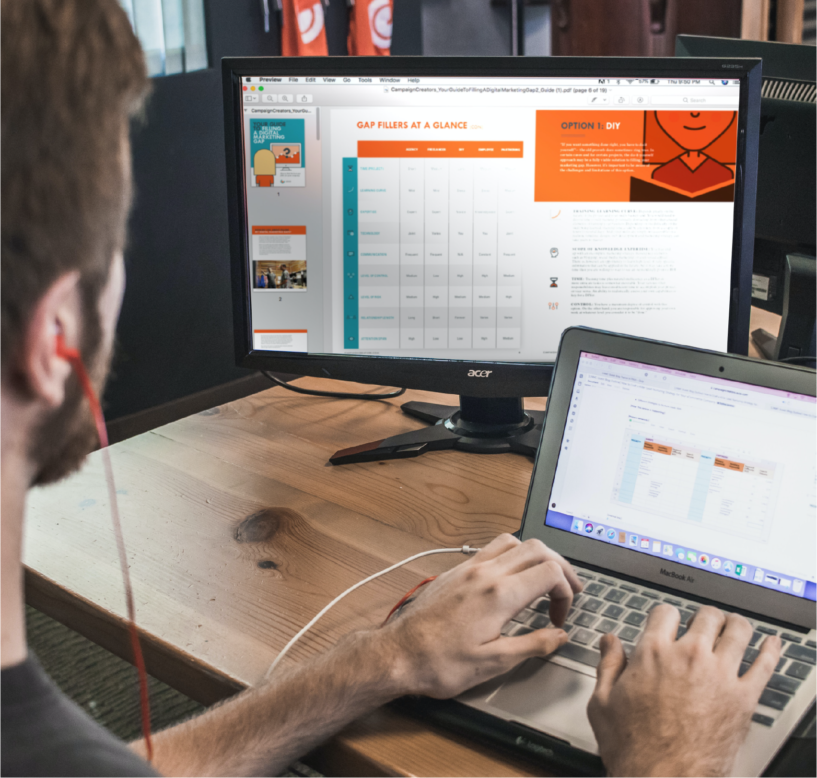What to look for, and what to do next to improve it
These days, it’s hard to be in business without a website. At their most basic they replace Yellow Pages listings, but can also help customers find information, make bookings and even buy from you. They’re important, and some can cost thousands to build. The difference between a cheap website and one with an extra zero or two on the end of the invoice comes down to how well it’s been built to suit SEO or search engine optimisation.
SEO is about increasing the quality of your site and how well you promote it so it ranks better in search results.
How search engines work
While there are other search engines out there, Google is by far the largest, so we’ll be focussing on them. Google is software located on many servers, which sends out ‘spiders’, bits of code that crawl through the net looking for new sites. When they locate a new site, the spiders index it – they file it – so searchers can find it easily. This is called relevance. The indexing gets you filed correctly, but how does Google determine who makes it to the top of the pile? If you’ve ever used Google you know that you rarely look past the first few listing pages – getting your site up to the top is about credibility.
Google will evaluate how credible your site is, a good indicator of its value to searchers. It’s based on criteria such as traffic, errors and load time. What sites link to yours also play a big part.
A poorly built site tanks your SEO rankings
While there’s a lot that specialists can do to improve your site rankings, the basics of SEO come down to the quality of your site. This might not be anything you can see while you’re using the site, but small issues could be impacting on its usability, and therefore your SEO.
Incorrect indexing
A well-built site will make sure spiders index it correctly so the right searchers find you. If spiders get your indexing wrong you’re at risk of losing valuable leads.
Error-filled code
Some platforms are more error-prone than others – a huge consideration if you consider that errors can tank your rankings. If your site has too many errors the indexing ‘spider’ will give it an overall lower-quality score. That makes your choice of developer and platform really important. If your site is built with software such as Wix, Weebly or Squarespace, you’re more likely to encounter errors than with WordPress, for example. This is simply because on a platform like WordPress these errors can be manually coded out.
Slow load speeds
How quickly your pages load for users is an important quality metric, according to Google. The faster the page load, the higher the quality. A leading cause of long loads is large images – pictures with big file sizes. For most websites, the simple fix is to use smaller files, but if your business needs to display high-resolution imagery (you’re a photographer, for example), this may not work for you. Load time can also affect the user experience – if a page takes too long to load people will get tired of waiting and click over to a competitor’s site.
Irrelevant content
Spiders take note of keywords to decide how to index your site. If you’re a plumber, for example, that’s as simple as making sure you have relevant keywords in logical places – plumber, Beach Haven. Google looks at the word count and keyword density – it needs a lot of words to establish what is relevant and important out of the content. On a home page, 350 words is ideal, while internal pages can get away with 300 words. Within this text you should be including relevant keywords and their synonyms to a decent density, i.e. repeated in your text. If your web copy is targeted and well-considered, you’ll find that focussing on your reader will be a great guide to getting to ideal keyword density. This will be enough for Google to decide the keywords are important to your site, so the spiders file it under the right search terms.
Where to next with your SEO?
Now you know the importance of SEO to your business, where to start? There are so many factors in getting your site optimised well for Google, but a good first step is to think of your keywords. Imagine your ideal customers – what search terms would they use to find your business? Try to come up with ten keywords and phrases, then type them into Google to see where your site currently ranks. How many pages back are you? How many companies are above you? They’ll be getting the majority of the traffic on these keywords.
To get ahead of your competition, SEO may be the solution for you. It’s important to remember that SEO is no quick fix – it takes months of hard work to start seeing results, but capturing more of the searching public means real dollars on the bottom line. The alternative is spending thousands on a website that no one ever sees. After all, you wouldn’t put your company on a billboard that was buried in the ground – would you?





